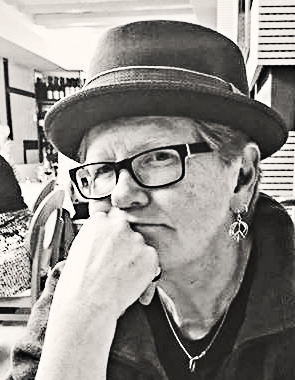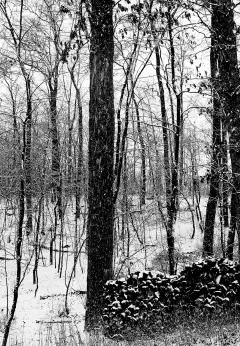By Jan Worth-Nelson
Following last night’s town hall in a North End sanctuary, one who responded was Deb Conrad, pastor of Woodside Church. In a personal blog post shared with East Village Magazine today, Conrad said, “the building isn’t the problem — city leadership is the problem.”
At the end of the tumultuous meeting, six were ejected from the church and arrested for disruptive behavior, assaulting an officer and interfering with police. Conrad did not attend the town hall but reflected on the reports based on her own experiences and observations as pastor of a church often associated with political causes.
“You could argue that it was predestined to get ugly, given that it was about water, that people are still paying high rates for poisonous water, and that there is now an encampment in the city of people from outside the city whose mission has become water protecting/protesting, support/agitation, depending on whom you ask,” she wrote.
“But the likelihood of ugly was increased by animosity of police and by an administration that seems committed to avoiding questions and insisting its judgment be accepted on its face, an administration that doesn’t well countenance dissent.”
As to the matter of separation of church and state, Conrad both defended the use of church spaces for political events and suggested that those spaces on such occasions should be a “commons” where “no one faith gets to make the rules.”
“As pastor of a congregation active in city issues, a congregation at home in a building often used for community events, and as a long-time pastor of churches where community things happen, let me say this: ‘church and state’ is hardly ever about buildings,” she said.

Deb Conrad
“Conversely,” Conrad argued, “churches have a responsibility to be available for community events, given the reality that we pay zero property taxes – ZERO property taxes – for the space we take up and the community’s services we use, including the police, the fire and ems, street lights and sidewalks, and clean water (hypothetically). We are exempt from all these costs, and I believe we owe something back to the community that allows us to exist on its dime.
“Church buildings, then, belong, at least in part, to the commons. If you want to tackle the ‘church and state’ problem, better would be to start with reforming our tax laws so our communities are no longer underwriting our religious existence.
“The mayor has a responsibility to be accessible – which means making herself available in the least restrictive environment possible. As soon as she takes her official seat in a public forum, wherever it is located, that space becomes an extension of the mayor’s office, which is itself a public space, a space belonging to all of us, a space where no one set of faith-based sensibilities gets to make the rules.”
Conrad continued, “There is a lot to worry about in Flint, including the state of our water and the state of our democracy. But to lay the blame wholesale at the church door is an utter misdirection and lets our city leaders off the hook.”
“And, if you think we still need to be respectful of a host congregation’s faith,” Conrad wrote, “I’d like to point to the undisputed center of the Church’s faith, the presumed model for Christian living: a man regularly criticized for his manners when what really bothered the authorities was his politics.”
Conrad’s whole post can be viewed here, at her blog called Mending the World.


You must be logged in to post a comment.